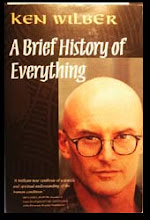In most of his music, he uses a technique he calls tintinnabulation, which juxtaposes a melody, generally moving from one adjacent note to another without big interval leaps, and its associated triad, the three notes of a chord (do-mi-sol).
“One line is who we are,” the composer said in a 2010 interview with the New York Times, “and the other line is who is holding and takes care of us.”
There’s a trippy inexorability to this technique’s forward motion, which balances a sense of fragility against a sense of purpose, a focus on minutiae against an eye to the whole.Wow. Not only did I want to experience that, I thought perhaps I already had. I was watching the BBC TV series "Call the Midwives." In a 1950s London slum, secular nurses serve side-by-side with nuns, living in the nuns' convent. Each day before the nurses go out to serve poor women in bad conditions, they pass the chapel where the nuns are singing their morning offices, usually just a plainsong version of a psalm. There's a haunting quality and an ambiguity in the nurses reactions: mildly jealous or glad they're spared the ritual?
But theses are no chirpy "Singing Nuns." Babies die, women are beaten, and the music reflects awareness of that suffering. In the stunning Christmas episode of the first season, we hear the plainsong out of the convent. A nun and a nurse are bathing a homeless woman who may not have bathed in years. We begin to hear a psalm, and up behind it comes a continuous tone. Bubbling up from the continuous tone are three notes. The effect is increasingly haunting, compelling. Definite "trippy inexorability." The scene becomes a sacrament.
 |
| Call the Midwives cast |
I thought perhaps Arvo Pärt's music would be like that -- perhaps even that Pärt had written the piece in "Midwives." But no, nothing in the concert affected me like the TV scene had.
Taking Low to new Heights
Pärt's work does take the expression of mournful to new heights. Here's a Youtube comment on his requiem for composer Benjamin Britten.
when your heart is blind, deaf, silent, just cold..The totally ironic thing is, I did not realize it was a requiem while it was playing. What I heard in its mellifluous cacophony was the coming destruction of civilization made bearable by the increasingly insistent tolling bell of Grace.
because you've lost everything you love
when you think you're dying every second, again&again
but you're not capable of feeling anything at all
when the demons in your head wont stop haunting your dreams
Pärt's rippin' up all your scars, & all the pain you felt
in your whole life breaks down on you again
every single tear you spilled in your whole life flows again
one last time
but you know
it's the only cure, your only chance to heal your wounded mind
your only opportunity to find peace
 |
| Sister Bernadette played by Shelagh Turner is lead singer in the crystalline chants of "Midwives" |
Binaural Beats and New Age Music
In both Pärt and Midwives, the sound made me think of binaural beats: a prominent feature in New Age or meditation music designed to carry us to a transcendent level. (Binaural beats are apparent sounds generated in consciousness when two tones at slightly different frequencies are presented separately, one to each ear.)
If Pärt didn't write the Midwives music, who did? Although I was able to buy the piece, Psalm 121, from the Midwives album at Itunes, no information was provided about the background music. I'd like to strip it out and use it in my daily meditation. What is it? Who wrote it? WHERE CAN I GET MORE LIKE IT? If anyone knows, please contact me.
Notes:
Psalm 121 from the Midwives album can be purchased at iTunes or heard here.
Samples of Pärt's music with annotated comments can be heard at the Washington Post review.
While researching, I came across this morsel: muppets do plainchant psalms






